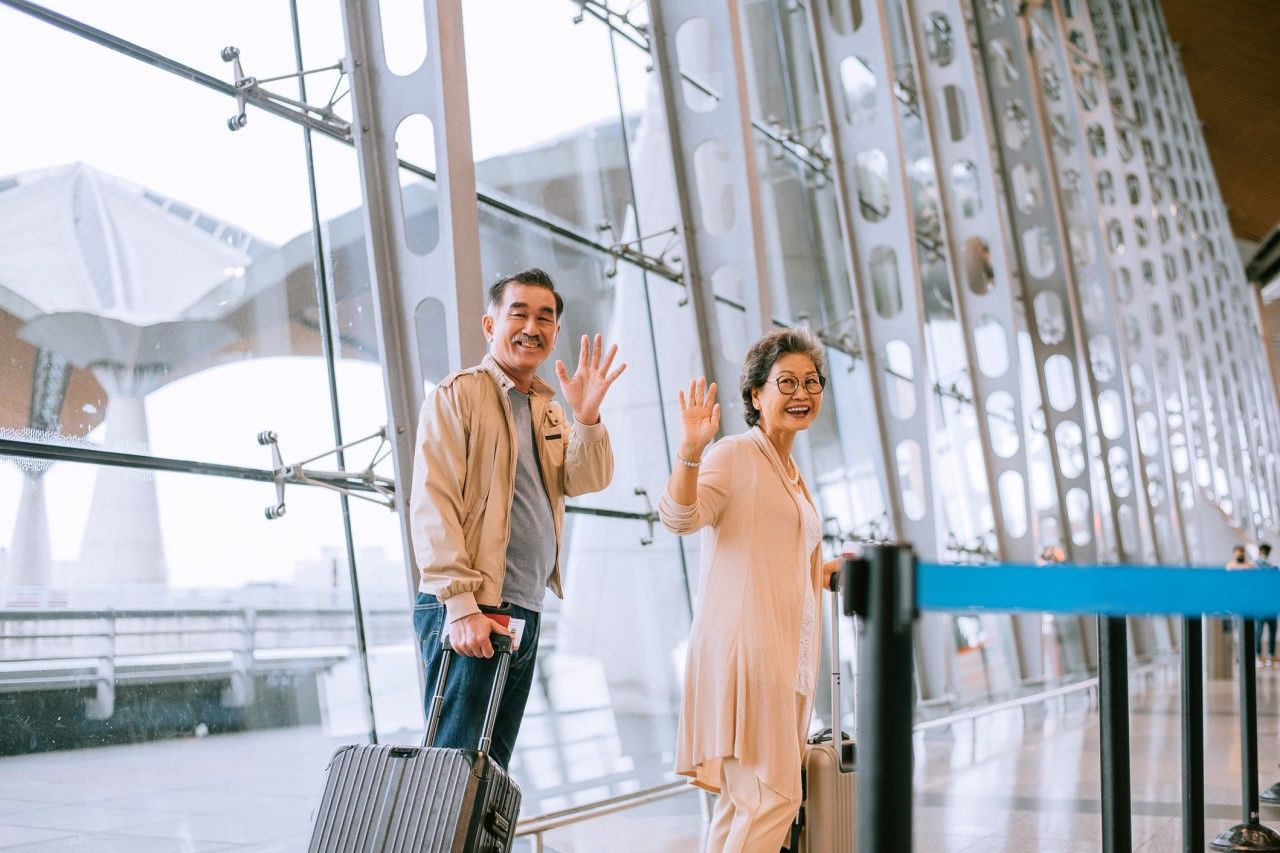Up in the air – report finds high airfares to stay
More seniors are returning to the skies as travel again opens up, but even the consumer regulator agrees fares are now sky high. Here’s why.

Key Points
- Fares are nearly 30% dearer than pre-pandemic.
- Fares are kept high by fewer planes flying and cancellations due to airline ‘resource challenges’.
- ACCC report forecasts six months before return to some stability.
Domestic air fares are about 27 per cent higher than they were pre-pandemic (in October 2019). Airline capacity and supply of services are not keeping up with demand. On the back of that extra revenue, our three airline groups are forecasting a profitable financial year. That comes after three years of significant losses.
These are some key points the Australian Competition and Consumer Commission (ACCC) makes in its latest Airline Competition in Australia report.
It’s discounted tickets that have increased the most in price. Last month, the cheapest economy return fares on over 10 routes were more than double what they cost pre-pandemic. More than half of these routes were to and from Sydney.
Flexible economy and business airfares have not increased as much as discounted fares – in November 2022 they remained below pre-COVID-19 prices.
Airline profits
The Qantas Group, Virgin Australia and Rex all expect to be profitable in the current financial year ending June 2023. The Qantas Group expects an underlying profit before tax of between $1.35 billion and $1.45 billion for the six months to the end of 2022, which is close to the company’s record for a full year of operation.
"The ACCC would be concerned if the airlines withheld capacity in order to keep airfares high," the report said.
Simply, the airlines don’t need to offer special or discounted fares to fill their planes because they’ve cut back on flights and the planes that do fly are selling to capacity.
Generally, the ACCC found fares have risen due to strong demand for travel and constrained supply as airlines have scaled back their schedules, which is plain and clear to travellers left stranded by delays and cancellations.
The cause of limited supply is high jet fuel costs and operational challenges, the regulator says.
Flight cancellations
Jetstar, Qantas, Rex and Virgin Australia collectively cancelled 2.9 per cent of their domestic flights in October 2022, down from 6.4 per cent in July and closer to the long-term average of 2.1 per cent. Nearly 31 per cent of all flights were delayed in October, compared with the long-term average of about 18 per cent. Qantas and Rex cancelled the lowest proportion of flights in October, and Qantas had the best on-time performance of the airlines.
“The airlines have significantly improved their reliability following historic lows over winter; however, flights are still regularly delayed,” the ACCC report says.
The regulator says it’s monitoring the situation, bearing in mind the airlines are still experiencing pandemic-related resource challenges.
However, the airlines are on notice not to continue to withhold capacity and services in order to keep airfares high.
The aim is to ensure the airlines return capacity to the market in a “timely manner to start easing pressure on airfares.”
The ACCC report led Australian Financial Review journalist Jennifer Hewett to turn her cynical eye on the regulator’s pledge to keep an eye on the airlines.
She wrote: “It certainly won’t stop Alan Joyce at Qantas and Jayne Hrdlicka at Virgin continuing to take surging profits from charging customers extraordinary prices indefinitely, knowing they will pay up.
“What’s the alternative for a public desperate to get back to travelling? The holiday rush is only going to exacerbate that as Australians celebrate a Christmas still full of COVID but relatively free of restrictions.”
The cost of airfares on many routes are expected to increase further in the upcoming summer holidays due to additional demand for leisure travel and continued constraints on capacity,” the ACCC report notes.
Qantas is operating at about 95 per cent of pre-COVID levels. Virgin said it hoped to be back to 100 per cent in December and January.
The report expects fares to come down as airline capacity gets back to pre-COVID levels. That could take another six months.
For further reading: ACCC







